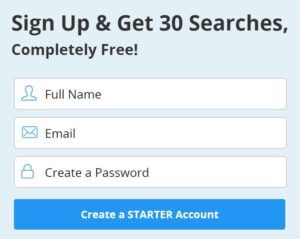I’m going to kick things off by diving into why keyword research is a linchpin in the digital marketing machine. Imagine trying to throw a dart blindfolded; that’s what it’s like to create content without keyword insights. You need to know what targets to hit – and that’s where keyword tools come into play.
Choosing the best keyword research tool isn’t a one-size-fits-all affair. It’s about finding a balance that caters to your specific needs and budget. Whether you’re a small business owner, a solo marketer, or part of a large team, there’s a tool out there for you.
I’m also here to help you understand the importance of E-E-A-T – that’s Expertise, Experience, Authoritativeness, and Trustworthiness. In the world of SEO, these principles are your guiding stars, ensuring what you create provides genuine value to your readers. And remember, this isn’t just about ranking well on search engines; it’s also about serving the people who are searching.
Now, think of keyword research tools as your digital marketing companions. Each comes with its unique strengths, and in the following sections, you’re going to find out about the standout features of various tools, starting with a household name – Google Keyword Planner.
The Versatility of Google Keyword Planner
When you first delve into the world of digital marketing, finding the right tools may seem like looking for a needle in a haystack. However, Google Keyword Planner stands out for its versatility and close alignment with Google Ads campaigns. It’s like having a trusted compendium that encapsulates the search behaviors of users across Google.
The Keyword Planner tool is integrated directly with Google Ads, providing marketers with valuable insights into keyword trends, search volumes, and cost estimates for running ads. Here’s the scoop: if you’re planning to use Google Ads, this tool can be your roadmap to understanding what your audience is searching for.
So, what are the standout features of Google Keyword Planner that you should be keeping an eye out for? Since it’s designed by Google, you’re tapping directly into rich data from the search engine itself. It offers tailored suggestions to help you filter through keywords, discover new terms, and even forecast performance. And guess what? It’s absolutely free, provided you have a Google Ads account. That’s right, no strings attached.
To leverage Google Keyword Planner to its fullest, begin with your keyword ideas or phrases related to your business. Don’t worry too much about perfection; this is all about exploration. The tool then generates a list of related keywords, complete with historical statistics and predictions for future performance. Remember, understanding these metrics is crucial for making informed decisions about your advertising strategy.
I’m going to let you in on a little secret: to get the most out of this tool, use it to identify longer, more specific queries that are less competitive but highly relevant – known as long-tail keywords. These can be golden nuggets for your SEO and PPC campaigns because they often signal high intent and convert better.
In my opinion, while the Google Keyword Planner is a powerhouse for any marketer, it’s essential to realize that it’s just one piece of the puzzle. Diverse tools can offer unique benefits, which brings us neatly to Jaaxy — a platform that’s all about affiliate marketing. But more on that in the next section.
Jaaxy: A Tool Crafted for Affiliate Marketers
Now, let’s talk about a tool that’s a bit of a game changer for affiliate marketers: Jaaxy. This platform was not just thrown together; it was meticulously developed by affiliate marketers who know the hustle and who had a singular focus on what a marketer truly needs.
Jaaxy excels where some tools lag behind. It brings the most relevant data front and center, allowing you to sidestep hours of tedious research. You’ll learn about profitable niches with little competition, high-traffic keywords with low competition, and even insights into where your competition might be weak.
What’s particularly appealing is the opportunity to take Jaaxy for a spin before committing to a purchase. Yes, you can try it for FREE! This speaks volumes to their confidence in the product, and in my opinion, it means they’re genuinely committed to providing value.
While Jaaxy offers premium versions, the initial free trial is pretty robust. It allows you to gauge its capability and how it complements your marketing strategy. It’s crucial to choose something that resonates with you and fits into your workflow seamlessly, and Jaaxy seems to understand that.
I love Jaaxy’s feature, SiteRank, which allows me to evaluate my website’s ranking for any keywords I have used. It helps me know whether I have chosen the right keywords or long-tail keyword phrases to reach top rankings in Google, Bing, and Yahoo.
You hear of unique domain and website sales all the time, many of which are in the millions of dollars for a measly domain name.
You hear of websites with IPOs (constantly going public on the stock market).
But where does the potential lie in the domain and website market for people like you and us?
Within Jaaxy, you can take advantage of the REAL opportunity to earn money through domains simply by following a process that many people have been using for years but still have no knowledge about.
The domain and website market is a big deal. Buying and selling domains is a BILLION dollar business. Are you ready to claim your chunk of the pie?
I love Jaaxy! It’s great for people who also want to carve out a unique space in the affiliate market. It aligns with your natural workflow, enhances your research efficiency, and helps pinpoint opportunities that could turn into goldmines.
Semrush: An All-in-One Suite for SEO-Minded Professionals
In my opinion, Semrush stands out as a truly comprehensive platform for those who are serious about SEO. This tool isn’t just about keyword research; it’s also about helping you craft a winning SEO strategy from the ground up. You’re going to find out about the various features that make Semrush a favorite among professionals.
The depth of keyword research available in Semrush is impressive. You can uncover not only the keywords that your competitors are ranking for but also the nuances of how these keywords perform across different regions and search engines. That’s the strategy I like to leverage when I want to understand the global impact of certain keywords.
But Semrush is more than keyword insight. It offers an extensive suite of SEO tools, including site audits that help identify on-page issues and backlink analysis that paints a vivid picture of a website’s backlink profile. Choose something that resonates with you – if you want detailed technical SEO guidance, Semrush has your back.
Now, let’s talk pricing. While Semrush does offer a free version, its capabilities are quite limited. The paid plans, however, unlock a treasure trove of features that cater to more advanced needs. Don’t worry too much about the cost initially. You can always adjust your approach down the road as you scale your efforts and require more robust data.
A consideration for users on a budget is the learning curve. Many SEO beginners might find the extensive features overwhelming. But, guess what? They are more doable than you think. I’m here to help you with that, pointing you towards resources and community support offered by Semrush that can make your entry into the platform as smooth as possible.
Ahrefs: A Pricier Option with Comprehensive Insights
In my opinion, if you’re serious about mastering the SEO game, Ahrefs might just be the tool you’re after. Ahrefs has earned a name for itself predominantly through its backlink analysis prowess. However, what’s really exciting is its equally powerful keyword research capabilities.
As you dive into Ahrefs’s platform, you’ll find a treasure trove of data that’s both detailed and actionable. You can uncover not just keyword volume and difficulty, but also insights into the ranking history of competitors for specific keywords. This isn’t just about keeping tabs on what others are doing; it’s about getting a clear map of the SEO landscape that’s relevant to you.
That’s the strategy I like to leverage when I’m planning content or mapping out a new SEO campaign. Understanding where you stand against your competitors can give you that critical edge. By analyzing the top content for your chosen keywords, you also get a sense of what Google considers relevant and quality content.
You’re going to find out that Ahrefs isn’t light on the wallet, and I won’t sugarcoat that. It does come with a higher price tag than some other tools. But choose something that resonates with you. If comprehensive insights and robust data are your priorities, the investment could be well worth it.
But don’t worry too much about the cost upfront. Your first attempt doesn’t need to be your last. Many find the initial investment pays off as the insights gained from Ahrefs drive more targeted strategies and, consequentially, better SEO results over time.
Choosing The Tool That Fits Your Puzzle
I’m going to wrap things up here and help you see the big picture. You’ve been introduced to some heavy hitters in the keyword research game, each with its own set of specialties and quirks. This isn’t just about picking the most popular tool; it’s about finding the right fit for your unique marketing needs and budget.
If you want to ensure your choice aligns closely with your SEO goals, think about the size of your business, the complexity of your keyword research, and your level of SEO expertise. Don’t worry too much about going all-in on a tool with more bells and whistles than you currently need. You can always adjust your approach down the road.
Choose something that resonates with you—one that feels intuitive and complements your workflow. Remember that the tool should assist you in making informed decisions but shouldn’t replace the foundational SEO work of understanding your audience and creating valuable content for them.
There’s a lot of opportunity in embracing a mix of these tools to enhance your keyword strategy, especially when you’re trying to balance advanced features with cost-effectiveness. That’s the strategy I like to leverage when advising on SEO tools.
Your first attempt doesn’t need to be your last, after all. Just don’t focus too much on perfection; focus on progress. In my opinion, the tools mentioned have their unique advantages, but your strategy, expertise, and the content you create are what will set you apart.
I really hope that this overview has shed some light on the diverse keyword research tools available and guides you toward making the best choice for your endeavors. As the digital landscape evolves, so too will these tools and your need to adapt. So, stay curious, stay informed, and never hesitate to refine your toolbox.
How to create a website and make money!








